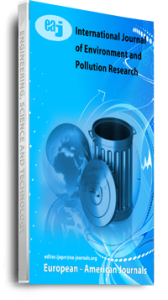This research work is in line with the strategic priorities of environment management agencies, and has the potentials to assist the organization in their effort to ensure the efficient management of solid and liquid waste in the City of Osogbo. With a view of providing empirical data information with respect to the causative factors responsible for the visible environmental pollution by wastes and materials from food outlets. Data was gathered from a representative sample of 332 food outlets on socio-economics demographic, environmental, sanitary and health related variables that are related to waste analysis was performed using statistical procedures such as frequency tables, pearson’s chi-square tests of association and binary logistic regression analysis in the statistical package STATA version 10. Odds rations estimated from logistic regression analysis were used for identifying key factors that affect efficiency in the proper disposal of waste. Results obtained showed that 18% of the 332 food outlets in the study were generally inefficient in waste disposal. Based on odds rations estimated from binary logistic regression analysis, wrong perception (a factor of 10.88), failure to provide trash cans to customers (a factor of 3.15), the operation of food outlets by non-owners of managers (a factor of 2.33), factors that affect the proper management of waste at the 332 food outlets in the study.
Keywords: Binary Logistic Regression, Osun State, Waste Management, Waste.

